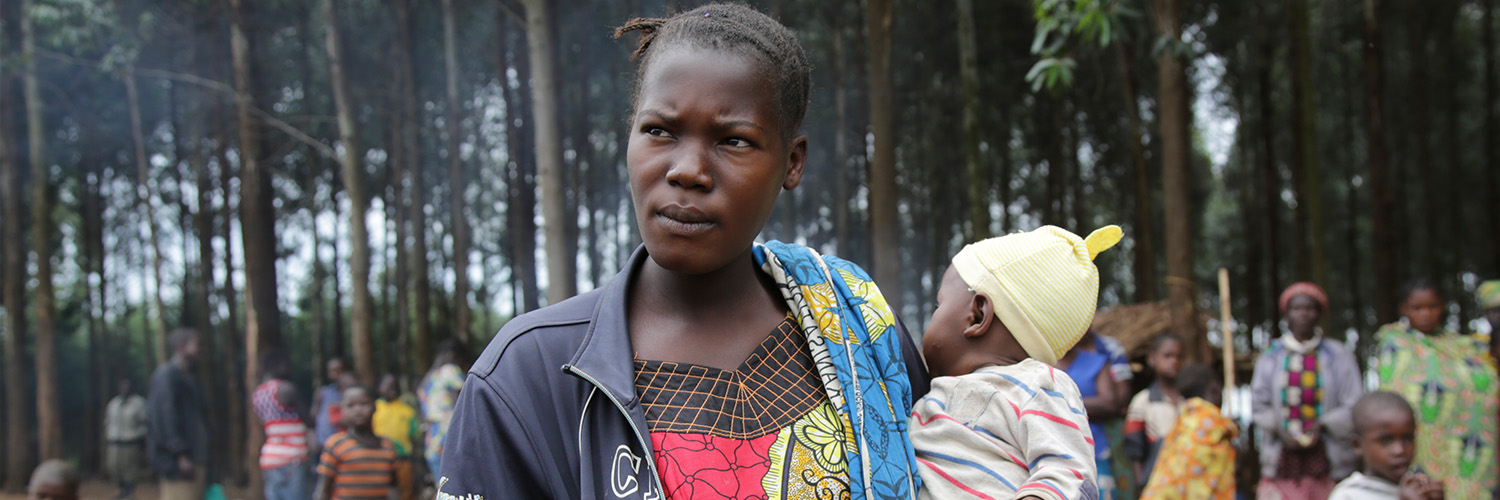Sudan: Women and girls abducted, held ‘in slave-like conditions’ in Darfur

The UN Human Rights Office (OHCHR) expressed alarm on Friday over reports that in Sudan, women and girls are being abducted, chained and held in “inhuman, degrading slave-like conditions” in areas controlled by the Rapid Support Forces (RSF) in Darfur.
The stark report comes against the backdrop of a sharp uptick in fighting between the Government’s Sudan Armed Forces (SAF) and RSF and heightened intercommunal tensions in the restive region.
The rival militaries plunged the country into a brutal civil war more than six months ago. Thousands have died and more than 5.7 million are displaced, inside and outside the African nation. Around 25 million are now relying on some form of humanitarian aid.
Representatives from the warring parties are now meeting in Saudi Arabia for renewed peace talks, steered by Saudi and the United States, and joined by the East African regional bloc, IGAD, according to news reports.
Survivors, witnesses and other sources have reported that over 20 women and girls have been taken, but the number could be higher, said OHCHR Spokesperson Liz Throssell.
“Some sources have reported seeing women and girls in chains on pick-up trucks and in cars,” she said.
‘Attributed to men in RSF uniforms’
As of Thursday, more than 50 incidents of sexual violence linked to the hostilities have been reported to the joint OHCHR-UNITAMS (the UN assistance mission) office in Sudan, impacting at least 105 victims – 86 women, one man and 18 children.
Twenty-three of the incidents involved rape, 26 were of gang rape and three were of attempted rape.
At least 70 percent of the confirmed incidents of sexual violence recorded – 37 incidents in total – are attributed to men in RSF uniforms, eight to armed men affiliated with the RSF, two to men in unidentified uniform, and one to the SAF, according to the office.
The remaining cases involved men who have not yet been identified.
Call for urgent release
Ms. Throssell called for the urgent release of the abducted women and girls and for perpetrators to be held accountable.
She reiterated High Commissioner Volker Türk’s calls on senior officials of the SAF, the RSF and affiliated armed groups to enforce a policy of zero tolerance of sexual violence in their ranks.
Stop the fighting: UN Mission
UNITAMS also voiced deep concern over the military escalation in Darfur and its dire impact on civilians, including displacement, casualties, and property destruction.
The Mission called on all warring parties to abide by international human rights and humanitarian laws, and ensure protection of civilians, allowing them to leave conflict-affected areas safely.
“At a time when so much hope is being placed on the Jeddah talks to achieve a sustainable ceasefire and facilitated humanitarian access, I call on all parties to refrain from escalating and expanding the conflict,” Clementine Nkweta-Salami, the deputy head of UNITAMS, said in a statement on Thursday.
“The toll this conflict is taking on civilians is unimaginable. Fighting needs to stop and parties to the conflict need to ensure the safe passage of humanitarian assistance to the millions of people in Sudan who desperately need it.”
Visit UN News for more.
ALSO READ
Bridging the Digital Divide: African AI Language Innovations
KBC Global Ltd Secures $20 Million Contract for East African Infrastructure
South African Assets Surge Amid Political Unity and Market Optimism
Suspended South African MP Faces Backlash Over Racist Video
Macron and African Leaders Launch $1 Billion Vaccine Manufacturing Push










